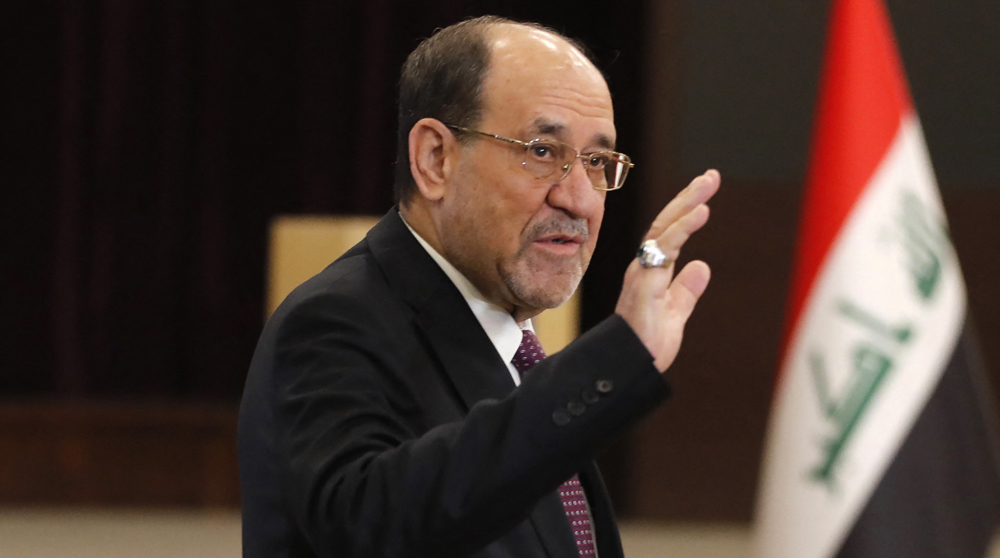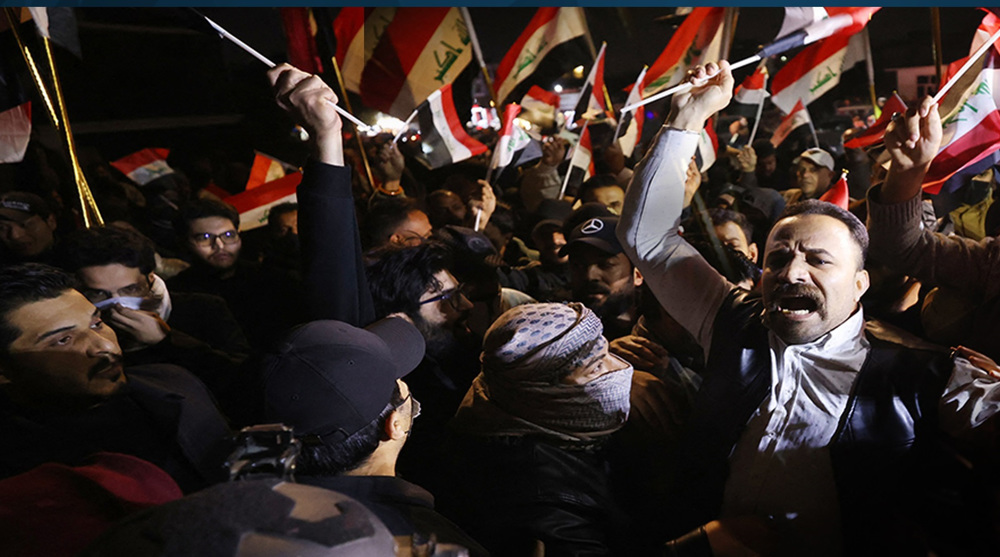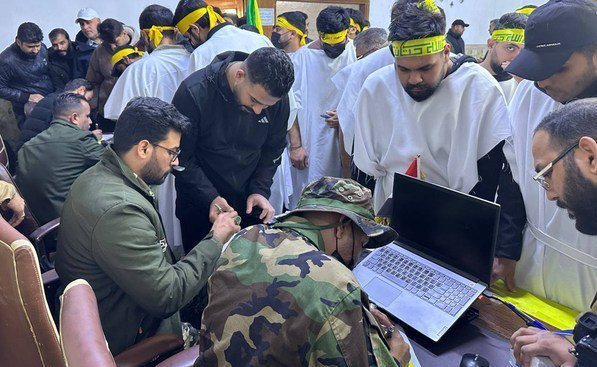Iraqi resistance groups decry Salih’s resignation as submission to US interests
Iraqi resistance groups have denounced President Barham Salih’s resignation as a violation of the constitution and have accused him of caving in to pressure from the United States.
The groups said the president, by resigning, had effectively refused to carry out his legal duty of designating the candidate nominated by the parliament’s largest bloc to act as prime minister, as required by the constitution.
Salih announced his resignation on Thursday, explaining that he made the move since the constitution did not allow him to reject the premiership of Assad al-Eidani, who was nominated by the Fatah parliamentary bloc.
“It is better for me to resign rather than assign an individual that is objected by the protesters to form a government,” he said, referring to months-long protests which have swept the capital and southern areas of the country.
The Iraqi resistance group Kata'ib Hezbollah, which is part of Iraq’s anti-terror Popular Mobilization Units (PMU) and is affiliated with the Fatah bloc, however, described the move as “suspicions”.
"We know that he is carrying out an American will that aims to pull the country toward chaos," it said.
The statement added that by bowing to pressure from Washington and other forces trying to exploit the anti-government protests, Salih is pushing the country towards crisis and is setting the stage for US intervention in the country.
The group also called for a speedy election that can prevent certain parties from imposing weak leaders and elements favored by the US or those which harbor corrupt partisan interests.
Iraqi parliamentarian Odai Awad, which is a member of the Asaib Ahl al-Haq resistance group affiliated with Fatah and the PMU, also vehemently rejected the president’s resignation.
He described Salih as a coward who should be discarded by “every Iraqi”.
Salih’s refusal to appoint the parliament’s nominated premier comes after Prime Minister Adel Abdul Mahdi stepped down last month amid ongoing anti-government rallies.
Abdul Mahdi currently retains the position of a caretaker premier.
The protests, which began on October 1, have been pressing the government to bring in reforms that would root out corruption and alleviate the country’s economic woes.
The rallies, however, soon turned violent -- amid reports of foreign interference – killing hundreds of people, including members of the security forces, the Parliament’s Human Rights Commission says.
According to reports, Iraqi security sources have claimed that a US-backed plan seeks to install a pro-Washington government in Baghdad by provoking internal strife and instability in the country.
Iranian drone successfully completes mission in intl. waters amid reports of US sabotage
Gaza Civil Defense collapses as Israeli fuel blockade halts all emergency operations
UN Chief warns Israel’s E1 settlement plans threaten Palestinian statehood
Russia warns of military measures if US deploys weapons in Greenland
Iran's foreign minister ramps up regional diplomacy amid tensions with US
Israel pressing for Iran strike, Trump remains reluctant: Report
1,900 attacks recorded in January as Israeli violence intensifies in West Bank
Hamas condemns treatment of Palestinians at Rafah border, calls it ‘organized terrorism'
















 This makes it easy to access the Press TV website
This makes it easy to access the Press TV website